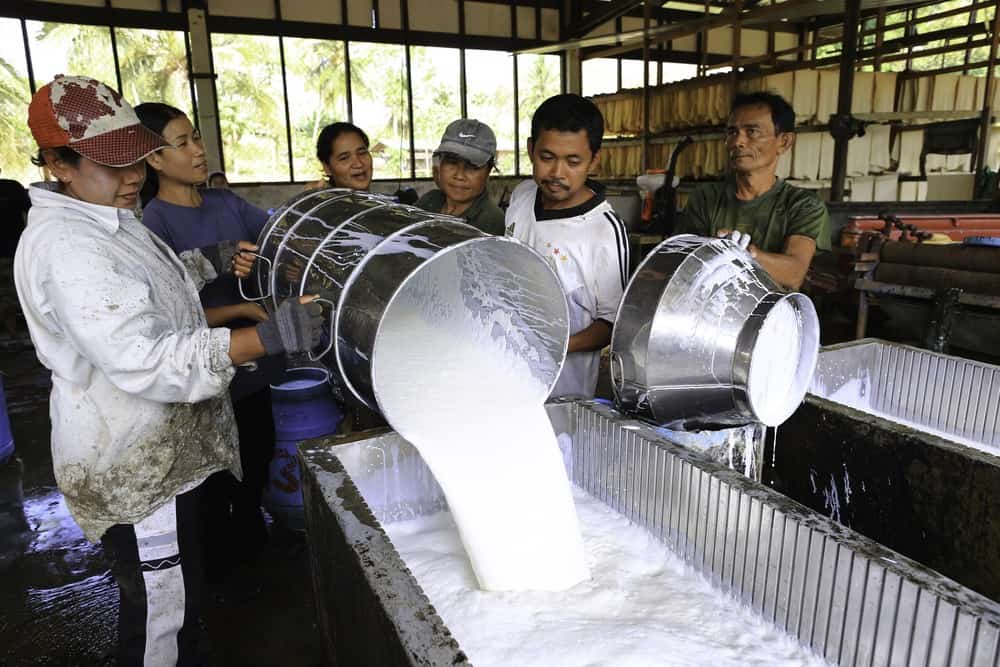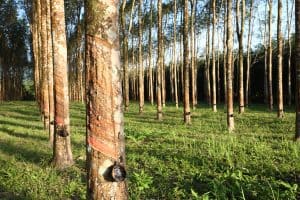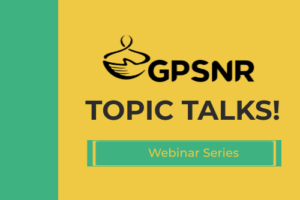What are the challenges that prevent the production of sustainable natural rubber in rubber-producing countries, and why do they exist?
What initiatives can be taken, and by whom, to effectively overcome these challenges?
How can GPSNR best support the natural rubber sector in becoming more sustainable?
In setting out to find the answers to these questions, the Capacity Building Working Group has established four regional sub-Working Groups to focus on developing country-specific capacity building goals and strategies for the following countries: Indonesia, Thailand, Côte d’Ivoire and Myanmar.
Since the first week of April, the regional sub-Groups have been holding weekly calls to get their respective projects started. Their first order of business? Identify the main challenges preventing the adoption of sustainable natural rubber practices within their countries of focus. Already, some commonalities have been revealed: the lack of implementation of best agricultural practices and poor diversification of farmers’ income. While challenges may be similar across the countries, proposed initiatives may differ due to a variety of factors such as technology and infrastructure, culture, degree of (or lack of) government support. The role that GPSNR can play in supporting these strategies would also depend on the particular conditions within each country.
The sub-Groups are currently working on prioritizing the identified challenges to capacity building, and will be linking expected outcomes to the components of the GPSNR Desired State.
Roland Baroan is the first GPSNR smallholder member to take part in a Working Group discussion. A rubber farmer with 37 hectares of land and current President of the Association of Natural Rubber Producers of Côte d’Ivoire (APROCANCI), Roland lends his local expertise and knowledge to the Côte d’Ivoire regional sub-Group. Smallholders from the other countries of focus will also be involved via a consultation process.
While we hope to see more smallholders participating in and contributing to the work of GPSNR, we must also ensure that the right support systems are in place for them to effectively connect and communicate with all members. To this end, the Smallholders Representation Working Group is finetuning a proposed programme to onboard our smallholder members. The Working Group is also discussing a suitable funding mechanism for future smallholder participation in GPSNR.
By laying the groundwork for smallholder inclusivity, we can support the natural rubber value chain in its efforts to become more sustainable, and thus more resilient to global catastrophes.






